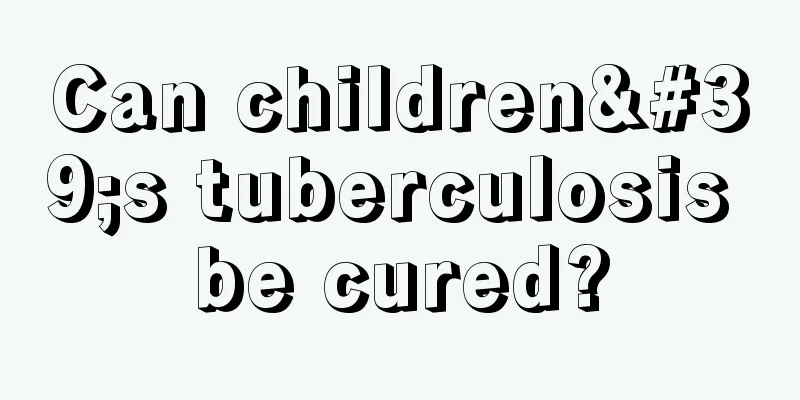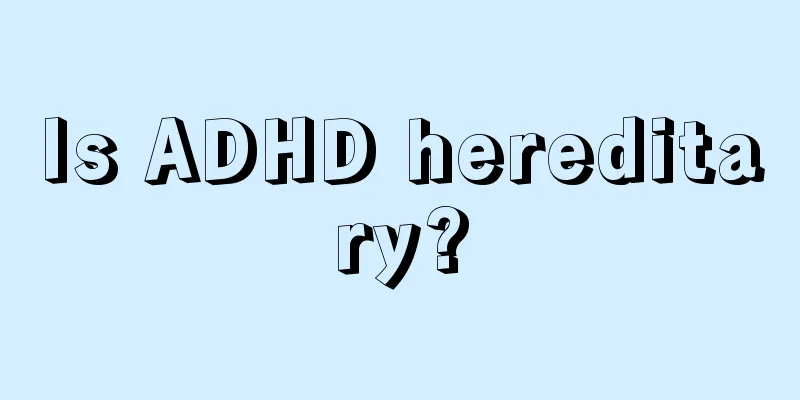What should we do if we have pericarditis in children?

|
Expectant mothers will pay special attention to their eating habits and daily behaviors during pregnancy. For example, those who like to drink and smoke will restrain themselves, and those who like to play digital electronic products will stay away from these products. Mothers do all these so that their babies can be born healthy. However, after the baby is born, more problems arise. Because newborn babies have weak resistance, they often get sick. Let us learn about pediatric pericarditis. Pericarditis refers to acute inflammatory reaction and exudation of the pericardium due to bacteria, viruses, autoimmune, physical, chemical and other factors, as well as chronic lesions such as pericardial adhesion, thickening, narrowing, and calcification. Clinically, there are mainly acute pericarditis and chronic constrictive pericarditis. Patients have symptoms such as fever, night sweats, cough, sore throat or vomiting, and diarrhea. Acute cardiac tamponade may occur if there is a large amount of pericardial effusion. Patients experience chest pain, difficulty breathing, cyanosis, pale complexion, and even shock. There may also be symptoms such as ascites and hepatomegaly. Tuberculous pericarditis is treated with anti-tuberculosis drugs. The medication method and course of treatment are the same as those for tuberculous pleurisy. Prednisone can also be added to promote the absorption of exudate and reduce adhesion. Rheumatic patients should strengthen anti-rheumatic treatment. Nonspecific pericarditis is generally treated symptomatically. Corticosteroids may be considered for patients with severe symptoms. In addition to the use of sensitive antibiotics for treatment of purulent pericarditis, pus should be repeatedly drained during treatment, or a thin plastic catheter should be placed in the pericardial cavity through a cannula for drainage. If necessary, antibiotics can also be injected into the pericardial cavity. If the therapeutic effect is not good, pericardiotomy and drainage should be performed as soon as possible to control the infection in time and prevent the development of constrictive pericarditis. Uremic pericarditis should be treated with enhanced dialysis therapy or peritoneal dialysis to improve uremia. After reading the above explanation and treatment of pericarditis in children, mothers will definitely have a clear idea in their minds. The baby is relatively weak, so the mother should consult a doctor and cook more disease-resistant foods recommended by the doctor for the baby. In addition, after your baby recovers from the illness, you must take your baby to exercise more and remember to keep him away from crowded crowds to prevent disease from entering the body through the mouth. |
<<: What should I do if my child has thrombocytopenia?
>>: How long do deciduous teeth last?
Recommend
Reasons why babies cry when they sleep
In fact, parents need to pay special attention to...
What is the reason for high alkaline phosphatase in children?
When children have high alkaline phosphatase leve...
Testicular retraction in children
Testicular retraction in children is a very commo...
What to do if your child has bubbles in his throat
Bubbles in a child's throat is a symptom of p...
Is it okay for children to drink milk powder before going to bed?
Infant milk powder is a formula milk powder speci...
What should I do if my one-month-old baby has a cold and a stuffy nose?
When a baby is just born, he is still in the stag...
What foods can help children grow taller?
A child's height first depends on the genetic...
What to do if your baby burps after feeding
In daily life, many young mothers will temporaril...
What is the reason for newborn baby peeling?
The appearance of a newborn not only represents t...
Things to note during the growth and development period of girls
Most girls grow and develop during the junior hig...
High testosterone levels in children
If a child has too high a level of male hormone, ...
How to care for newborn acne
Newborns are also prone to acne, which is closely...
Disadvantages of frequent feedings
Many mothers do not know how much milk their babi...
Two-year-old baby's head bone protrudes
As children grow, problems are more likely to occ...
What should students eat to nourish their brains and make their children smarter?
The pressure faced by students is getting greater...









